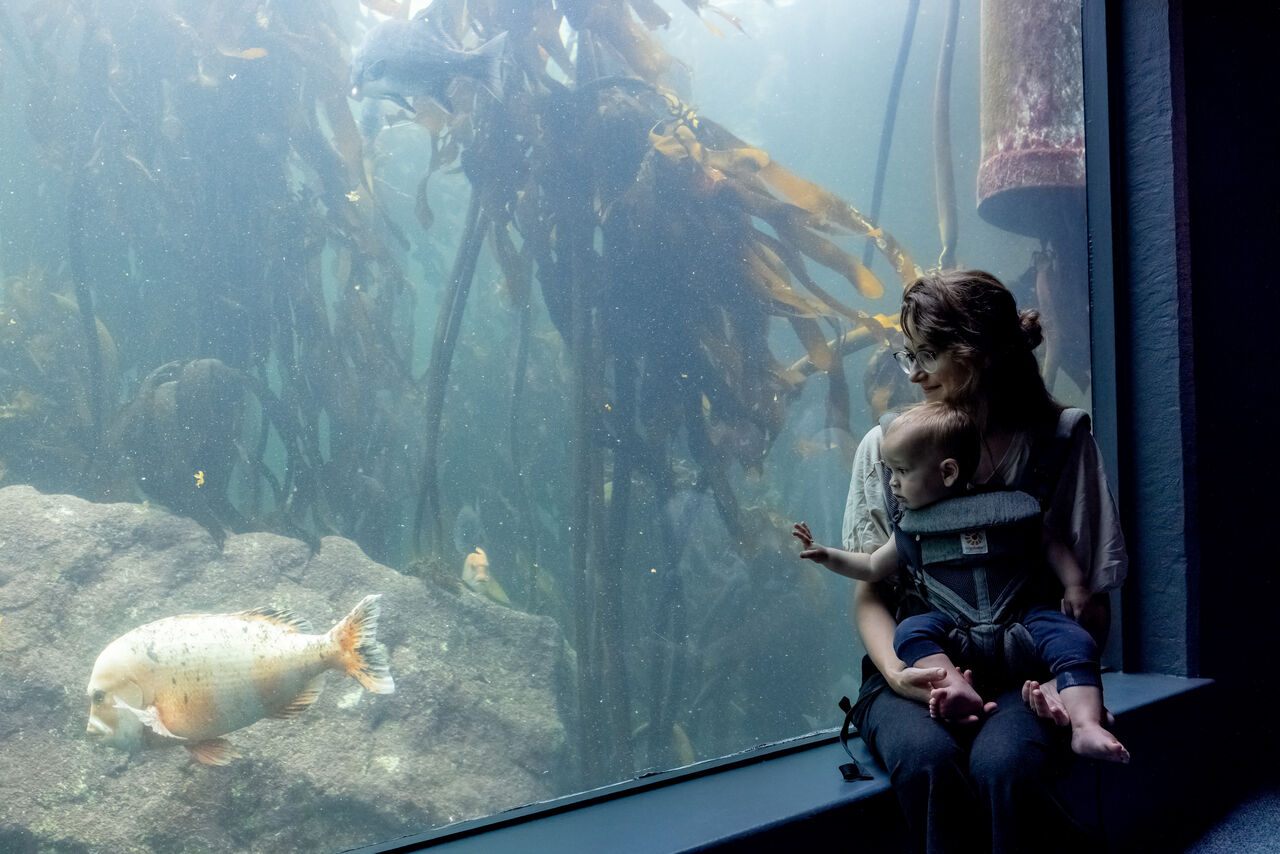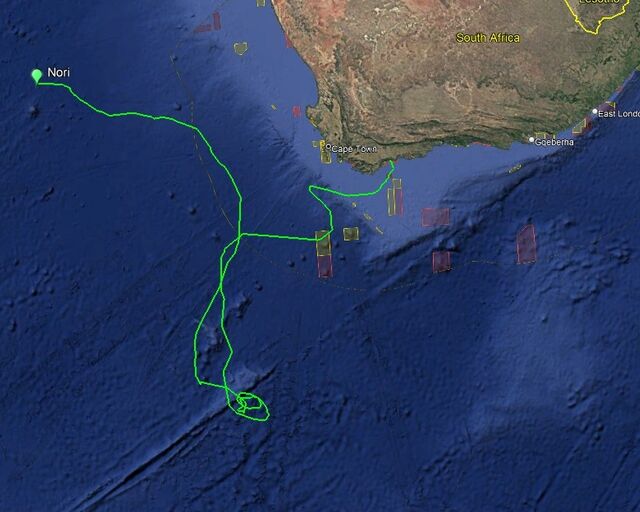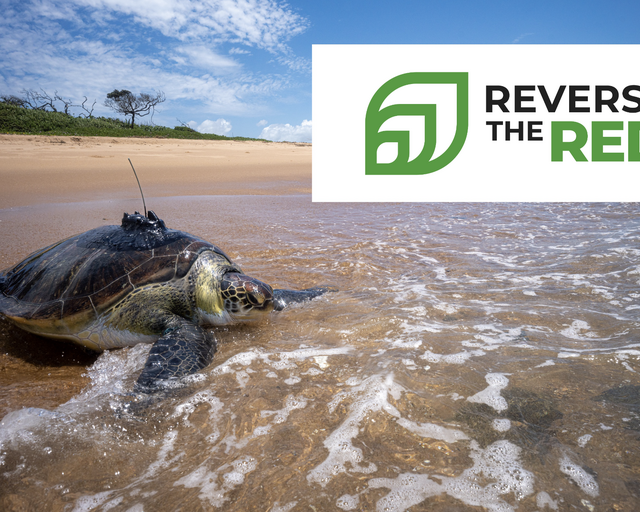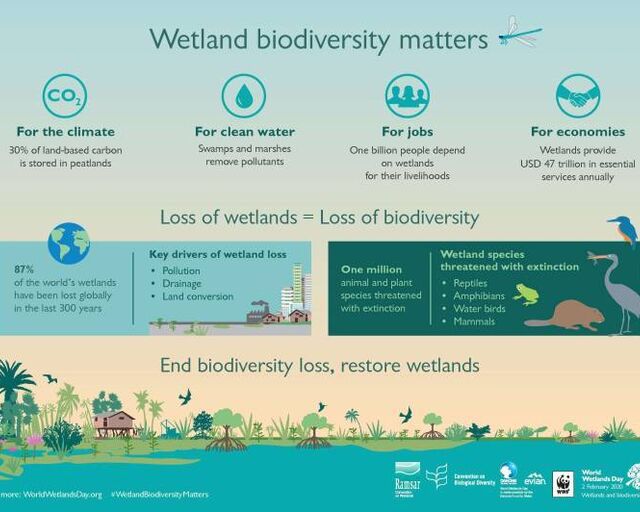It’s Mother’s Day, and we’re celebrating a few of the ocean’s wonderful “marine moms”! In nature, parental care presents itself in a variety of ways – from the helicopter moms of the whale world to sea turtles’ completely flippers-off approach.
In many animal species that exhibit parental care, females generally bear primary responsibility for their offspring. And believe it or not, parental care begins before the young are even born! This includes nesting, guarding, incubating, and laying eggs, followed by brooding, nursing, feeding, and defending the young.
Octopus
Octopus moms have a self-sacrificing streak… Octopuses are semelparous animals, meaning they reproduce once before dying. After fertilisation, female octopuses find a secure hiding place or den to care for their eggs until they hatch.
Depending on the species, the incubation process can last anywhere from a few weeks to nearly ten months. The common octopus (which you can visit at the Two Oceans Aquarium) incubates its eggs for about two months.
During this time, females devotedly care for their eggs. In fact, they never leave the clutch and forgo food entirely. Using their siphons to blow currents over the eggs, female octopuses constantly aerate and oxygenate them. They also protect the clutch from predators and keep it clean.
Around the time the eggs are ready to hatch, female octopuses die, having expended all their energy on keeping the eggs safe.
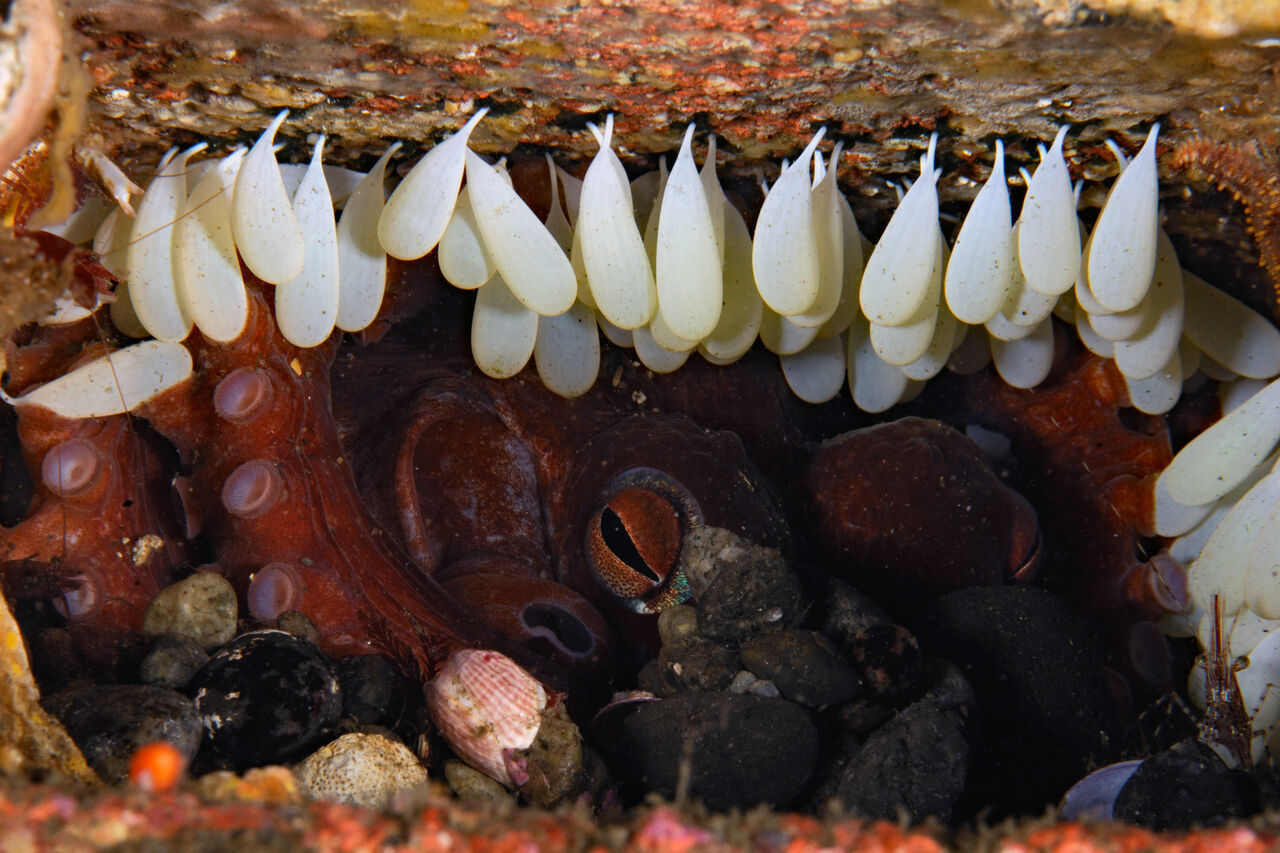
Whale
Whales are well-known in the animal kingdom for their high levels of parental care.
As marine mammals, whales give birth to live young. Females carry a calf for a period of 10 to 18 months, depending on the species. Whale mothers display intense maternal behaviour towards their vulnerable offspring, and for the first year of their lives, calves rely heavily on their mothers for survival. In fact, mothers even lift their calves to the surface to help them breathe.
As calves grow, they remain at their mothers’ sides as they learn to swim, surface, and hunt successfully. This creates a strong bond between mother and calf, especially evident in species like the southern right whale, which visits our coastline annually to calve.
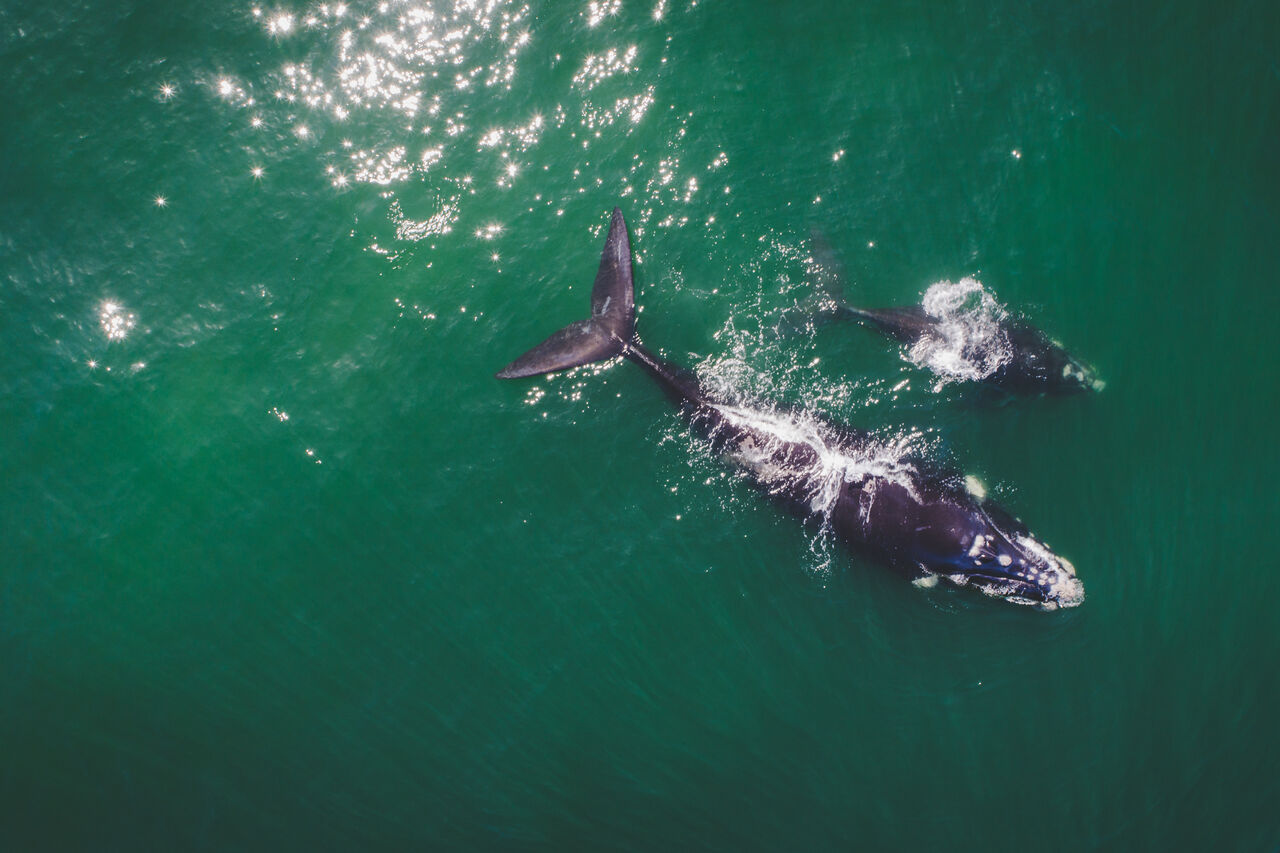
Turtle
While sea turtles are completely independent of their parents after hatching, the females’ nesting process is an incredible display of parental care – despite being the only direct interaction they ever have with their offspring.
During nesting season, female turtles follow the Earth’s magnetic poles to the natal beaches where they hatched decades earlier. In the evening, they haul their heavy bodies up the shore to the high-tide mark and carefully select a nesting site.
Digging a nest over a metre deep with their hind flippers, the females deposit up to 150 soft-shelled eggs in a trance-like state. Once finished, they cover the eggs with sand and completely disguise the nesting site, flicking sand over their tracks and even moving back and forth along the beach to confuse predators.
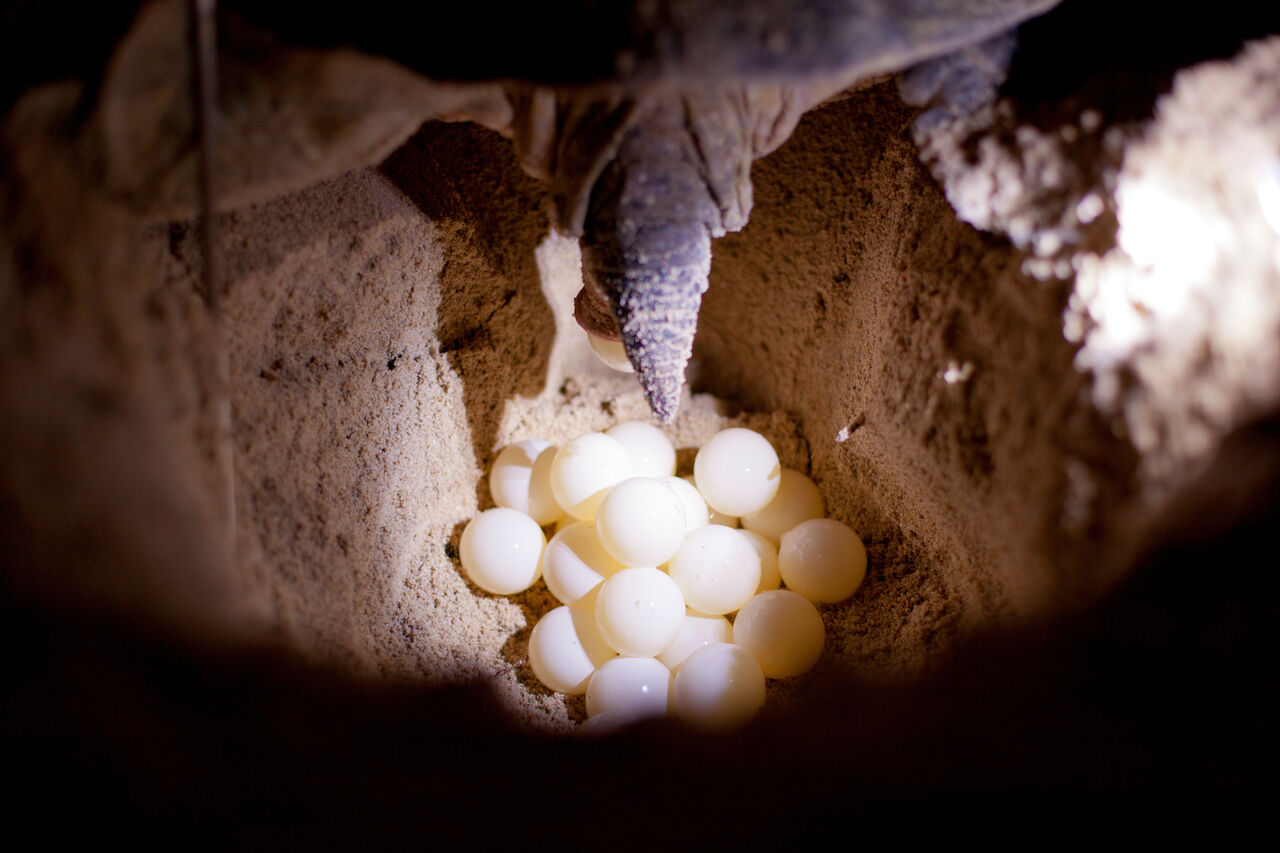
This Mother’s Day, we celebrate these fabulous marine mothers, as well as many others in the ocean. From octopus moms who guard their eggs and whale moms who nurse their calves, to turtle moms who ensure their offspring stand a fighting chance, marine moms play a vital role in the survival of the next generation. The ocean is certainly full of mothers worth celebrating.
To all the mothers in our broad, beautiful ocean community: Thank you for nurturing the next generation of curious, responsible, and compassionate ocean champions. Happy Mother’s Day!
Related News
Sign up to our Newsletter
Receive monthly news, online courses and conservation programmes.
